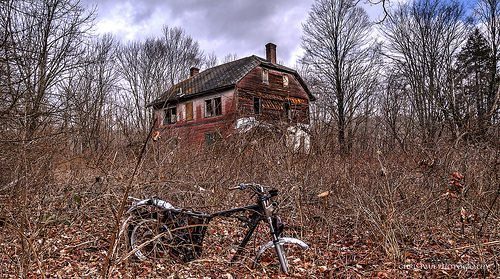A common question from real estate agents is does the seller or agent have to disclose that someone died in the house? Does it matter the manner of death? South Carolina Code §40-57-180 answers these question. The statute reads (paraphrased):
No cause of action may arise against an owner or licensed real estate agent for failure to disclose:
(1) property is or was occupied by someone infected with a virus or disease, which has been determined by medical evidence as being highly unlikely to be transmitted through occupancy;
(2) the death of an occupant or the manner of the death;
(3) any off-site condition or hazard that does not directly impact the property; or
(4) any psychological impact that has no material impact on the physical condition of the property.
Nothing precludes an action against an owner or agent who makes intentional misrepresentations in response to direct question from a buyer or prospective buyer with regard to psychological impacts, offsite conditions, or stigmas associated with the real estate.
While the portion of the statute that pertains to responses to direct questions does not includes questions about death, the use of the term “stigmas” in the phrasing does bring the requirement to answer direct questions about death into the provision. The Real Estate Commission has long held that an agent must disclose the death of an occupant if asked a direct question. In the MCE Class -“Top 10 Ways to be Disciplined” (2008) the materials specifically stated that you may not misrepresent the death of an occupant if directly asked.
Therefore, the seller nor the agent has to disclose that someone died in the house. It does not matter if the death was natural, by disease (has long as non communicable), suicide or murder. However, if a buyer or prospective buyer asks a direct question about a death in the house, you may not make an intentional misrepresentation. This does not mean you have a duty to investigate, but you are required to answer honestly based on your knowledge.
Lastly, be careful about nondisclosure of items that would be covered by Item #3. While the seller and agent have no duty to disclose off-site conditions that do not directly impact the property, you do have a duty to disclose an off-site condition that does affect the property. You may need to consider items such as airports, garbage dumps, excessive road noise and gun ranges as things to disclose as these items could directly impact the property. Each matter needs to be looked at in relation to the property and the affect it has on that property.
Historical Fact- Gadsden Street is named for Charlestonian Christopher Gadsden who was born in 1724. Gadsden was a member of the 1759 Cherokee Expedition, the Common House of Assembly, and the two Continental and Provincial congresses. He also served in the General Assembly. During the Revolution he was the principal leader of the South Carolina Patriot movement and rose to the rank of brigadier general. He later served as vice-president and Lieutenant General of South Carolina. Gadsden died in 1805 and is buried in St. Phillip’s churchyard in Charleston. He was also the designer of the famous Gadsden Flag.

Photo by Chris Paul 2014 

